"Sometimes the best way to collaborate is to say, 'No, that's not working for us.'"
A conversation with two Chicago-based members of Second City's educators' union, now more than 600 days into contract negotiations.
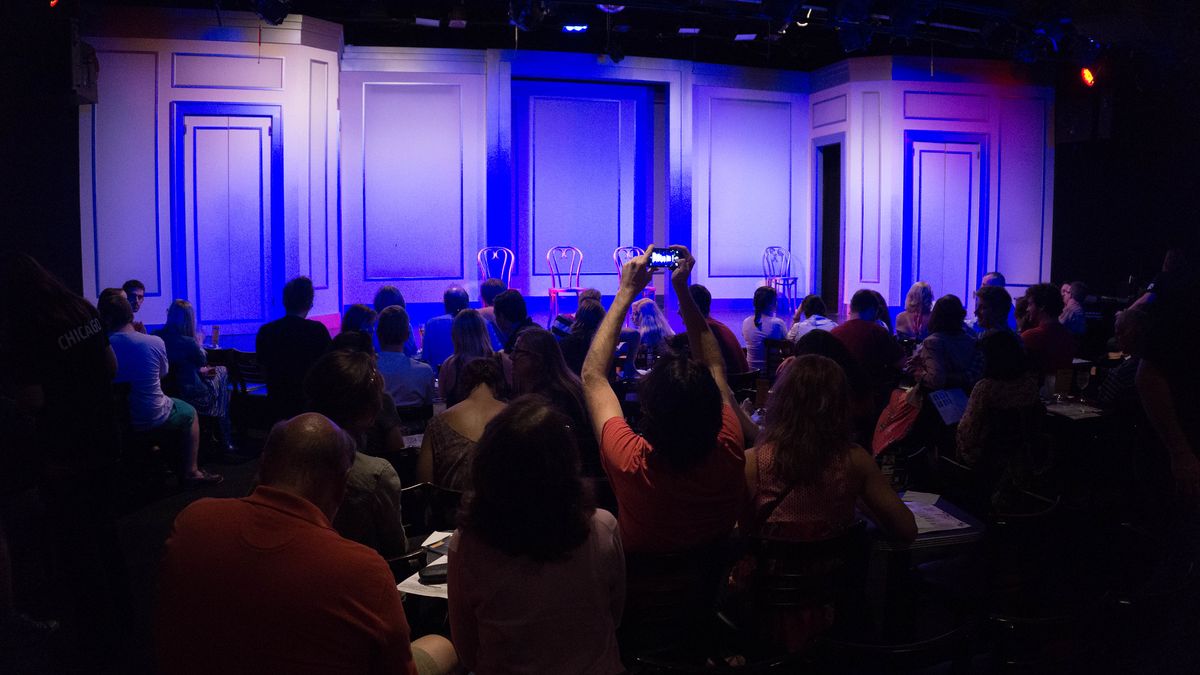
In early 2021, around 300 arts educators affiliated with The Second City’s three locations—Chicago, Hollywood, and Toronto—formed a union, the Association of International Comedy Educators. AICE includes the theater’s training center instructors, workshop facilitators, music directors, and faculty in its film school. Really it comprises three unions: in Chicago, the Illinois Federation of Teachers (IFT); in Hollywood, the Communications Workers of America (CWA); and in Toronto, CWA Canada.
Established in the wake of a chaotic year for the historic comedy institution—including mass layoffs at the beginning of the pandemic, a reckoning over the theater’s racist past, and its sale to private equity firm ZMC—the union hoped to address problems that Second City’s management had long overlooked. “The arts educators of The Second City are unionizing to guarantee equitable and just working conditions for all The Second City teachers and facilitators,” its mission statement said. “We seek to establish health & accessibility, diversity & inclusivity, fair compensation, and reasonable employment terms.”
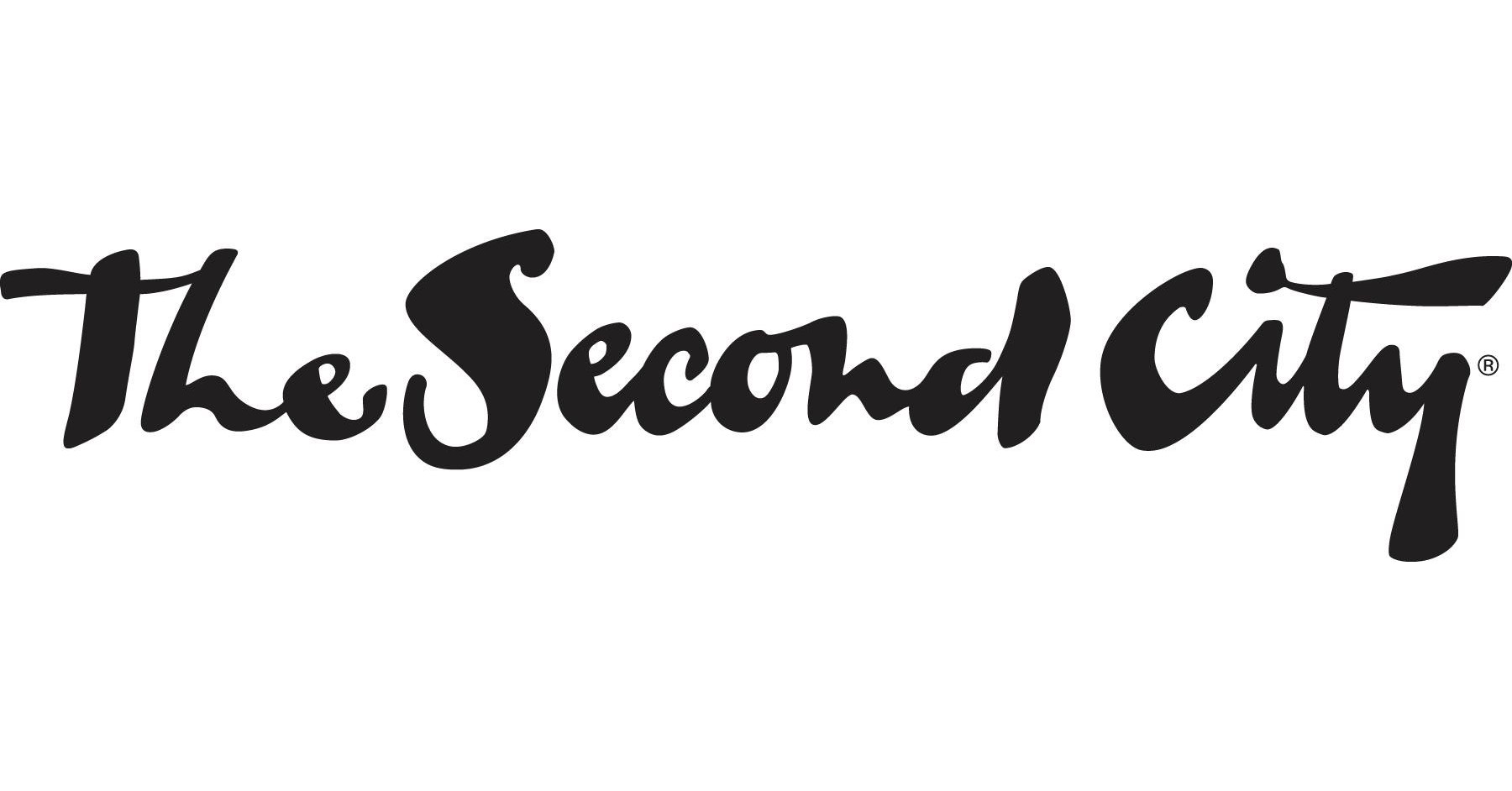
More than 600 days later, the Toronto arm of the union signed a three-year collective bargaining agreement with Second City yesterday. Union members in the other two cities remain in limbo. The theater currently has no physical presence in Los Angeles, nor any public plans to reopen one; in fact, its website no longer contains any references to Hollywood operations at all. Meanwhile it announced today that its new New York City location, at the former site of record store and concert venue Rough Trade in Williamsburg, will open in November. “New York represents a wonderful opportunity for us to showcase our world-renowned brand of comedy-based entertainment with an incredible NYC-based cast, and to deliver our proprietary Yes, And… improv-based training,” CEO Ed Wells said in a statement. (Interesting word, there—proprietary.) “Building upon our storied history and decades of success in Chicago and Toronto, we are thrilled to improvise a whole new adventure with the New York City community.”
I recently spoke with two Chicago-based AICE members, Bina Martin and Piero Procaccini, about their negotiations with the theater, what they hope for in a bargaining agreement, and what the larger improv and sketch community should take away from AICE’s efforts. Representatives for Second City have not responded to questions I sent via email, though I will update this post if they do.
I know you’ve been at this for a while, but let’s just start with some background on the effort overall. How many members do you represent? Where do things stand right now?
Procaccini: This is, to my knowledge, one of the first collaborations internationally between three different unions. As a collective, we call ourselves AICE, which stands for the—
Martin: Association of International Comedy Educators.
Procaccini: But technically, there are three different unions representing people locally. So we've been trying to coordinate those efforts. I think under AICE as a whole, it's close to maybe 200 teachers and then maybe 100 facilitators. And then I would say for Chicago, it's probably closer to somewhere between 100 and 150 faculty, and then probably closer to 30 to 50 facilitators.
And another thing to note is that AICE represents, as the name indicates, anyone teaching. It's faculty, facilitators, musical directors sometimes. And Second City also runs a film school, so it represents the faculty from that too. That's very small, I think it's eight people or something, but they're also represented by the union.
Broad strokes, what do you want out of this contract?
Procaccini: The mandate I hear from people is more transparency, more accountability, and just more equity and fairness in general. I think that this very much parallels a lot of the social justice movements that happened in 2020, there's a strong bent in that direction. But we always talk about the fact that you don't get to equity without fairness to begin with. And so if the workers are being taken advantage of overall, you don't get to any kind of racial or identity equity either. So it’s primarily the idea of trying to hold Second City accountable to some of the ideals that it has publicly stated it wants to uphold.
Martin: There's a narrative that we have often felt, that echoes in the SAG and WGA strikes, which is: we feel so lucky to be able to do what we love. At the same time, that doesn't mean that we shouldn't be able to get a fair wage and transparency.
An open letter from The Second City pic.twitter.com/wHVNC2SHFV
— The Second City (@TheSecondCity) June 11, 2020
I remember the previous management said it would tear the whole thing down, if necessary, to fix the place, and then they sold it. Do you feel as if the new management has that same commitment to addressing the problems that were exposed in 2020?
Procaccini: That's one of the questions we want them to answer. Certainly the narrative when it was being sold was the idea that the owners were selling to people who would take seriously all of the initiatives that they had put into place, and all the goals that were in place previously. At least optics-wise, part of the rationale for the sale was to relinquish control over a system that they had sort of accepted responsibility for failing at. So it would certainly be appropriate that they would make sure that they sell to somebody who was passionate about the same goals.
I don't know whether or not there's been any public declaration by the new owners to that effect. I think in many cases it was implied—[Stephen] Colbert was head of the artistic board, I think he's head of the managing board too. So there's a degree of integrity associated with him and his history with the building. So I think there was a lot of hope placed in that relationship. But I don't know.
Martin: We are getting a narrative also that “we're just trying to keep this place alive,” but I've heard echoes of that through many industries when it comes to union workers trying to fight for their ability to stay alive. We're also getting very conflicting reports there: they're saying that enrollment may be down and we're not getting as much in the Second City Works arena, and yet then we see them purchasing a new building in New York at what cannot be a negligible cost. So, we're hearing very conflicting reports. There seems to be this idea that those two things aren't related, but it's confusing to us.
What have your negotiations been like?
Procaccini: Long, for starters.
Martin: We're going on two full years now.
Procaccini: There have been ups and downs. One of the things that has been challenging about it is there's just been a lot of turnover. So we feel like we've made progress with certain people at the table, and then those people turn over, and we're sort of starting again. Sometimes those conversations have felt very collaborative, very fruitful, it's just a matter of the handoff there.
Martin: I think what's unique about this situation is that what we preach as an institution in the training center, but also especially in Second City Works, our business arm, is this idea of being others-focused: of being collaborative, of being "Yes, and." And we hear whiffs of that sometimes, but sometimes it doesn't feel like we're practicing what we preach. So that's something that we have to contend with. We all firmly believe in what we do, but sometimes when we're getting pushback that does not feel along those lines, it can be frustrating.
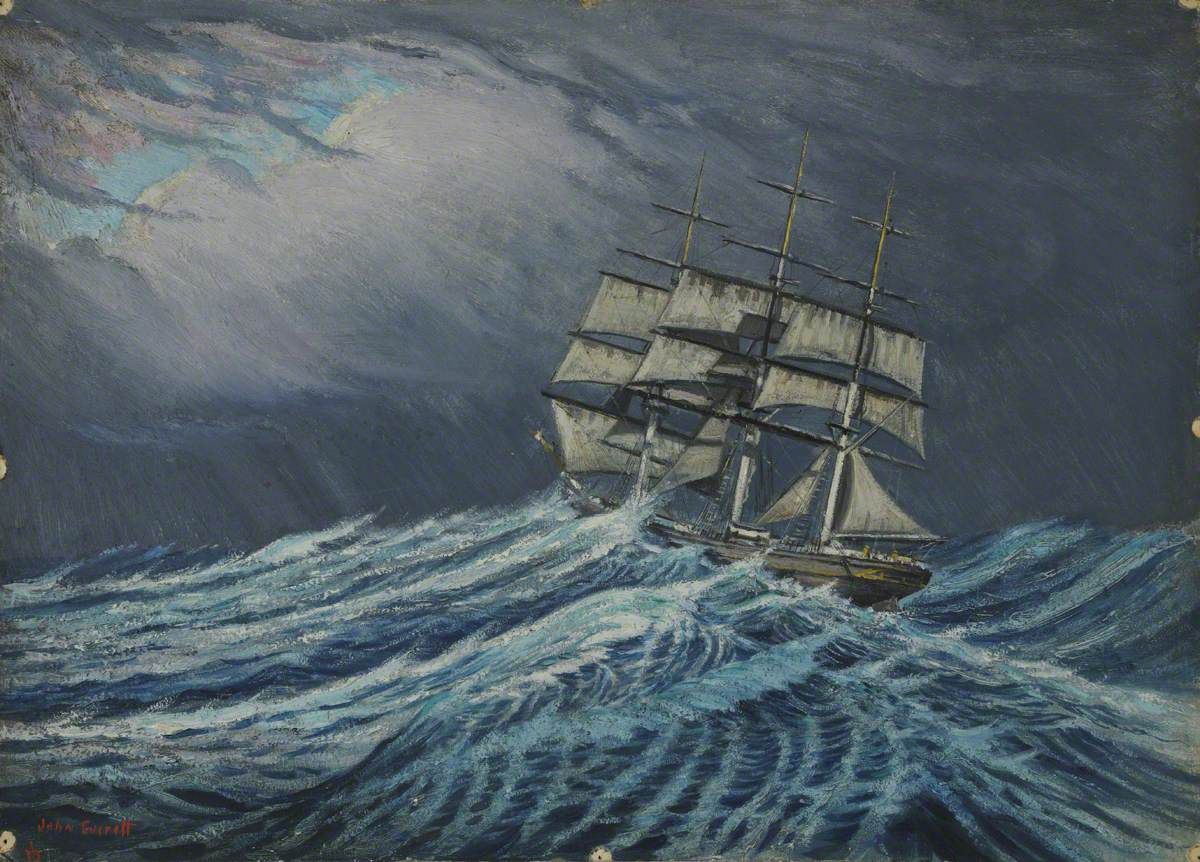
Can you tell me how much your members make right now and what numbers you're asking for?
Martin: I’m reluctant to put a number here, but we're trying to do what we believe is comparable in the industry and making up for what has not been for a very, very long time. So I think leadership can see what we’re asking as a big jump, and yet it feels like that's where we should have started in the first place.
I've been writing about comedy for nine years or so, and it seems like a recurring pattern that workers will ask for something that is just a normal thing they should have been getting the whole time, and the leaders of these for-profit institutions will paint that ask as hugely unreasonable and impossible for any business to ever pay. When in fact there's loads of precedent for it.
Martin: Right. To add to that, in 2018, facilitators in Second City Works were forced, for lack of a better word—
Procaccini: We were reclassified.
Martin: We were reclassified as independent contractors. So out of necessity, many of us sought similar work. We now have so much evidence of what the going rate is, what businesses are paying, and what percentage we are getting versus other places are getting or giving. We’ve been reclassified as we unionized—back to W-2, which was a huge victory that we won through organizing—but there was this idea that we could ask for whatever we wanted, and that was not the reality when we were independent contractors.
Procaccini: The other thing is that we have lots of guesses, but the reality is that we don't know [how much Second City is making]. In terms of that idea of transparency, look—they're a privately owned company, obviously they don't have to share their books with us. But in terms of that idea of transparency and equity, when you're always guessing at the amount that you're making relative to what is being sold, there could be some distrust there as well.
To go back to the faculty rate, some comparable institutions in the city certainly are even upwards of a $100 an hour. So it's really a range. We're willing to come to the table and try to talk about something that's reasonable, but we need to have that conversation, and they have to be willing to revisit their business plan so that it incorporates more conversations with the people who are actually doing the work.
And honestly, not just compensation, but also conditions, right? Just really codifying some of those things that are protections for us: definition of work, span of day, very reasonable things to want to codify in the contract. That's important to us as well.
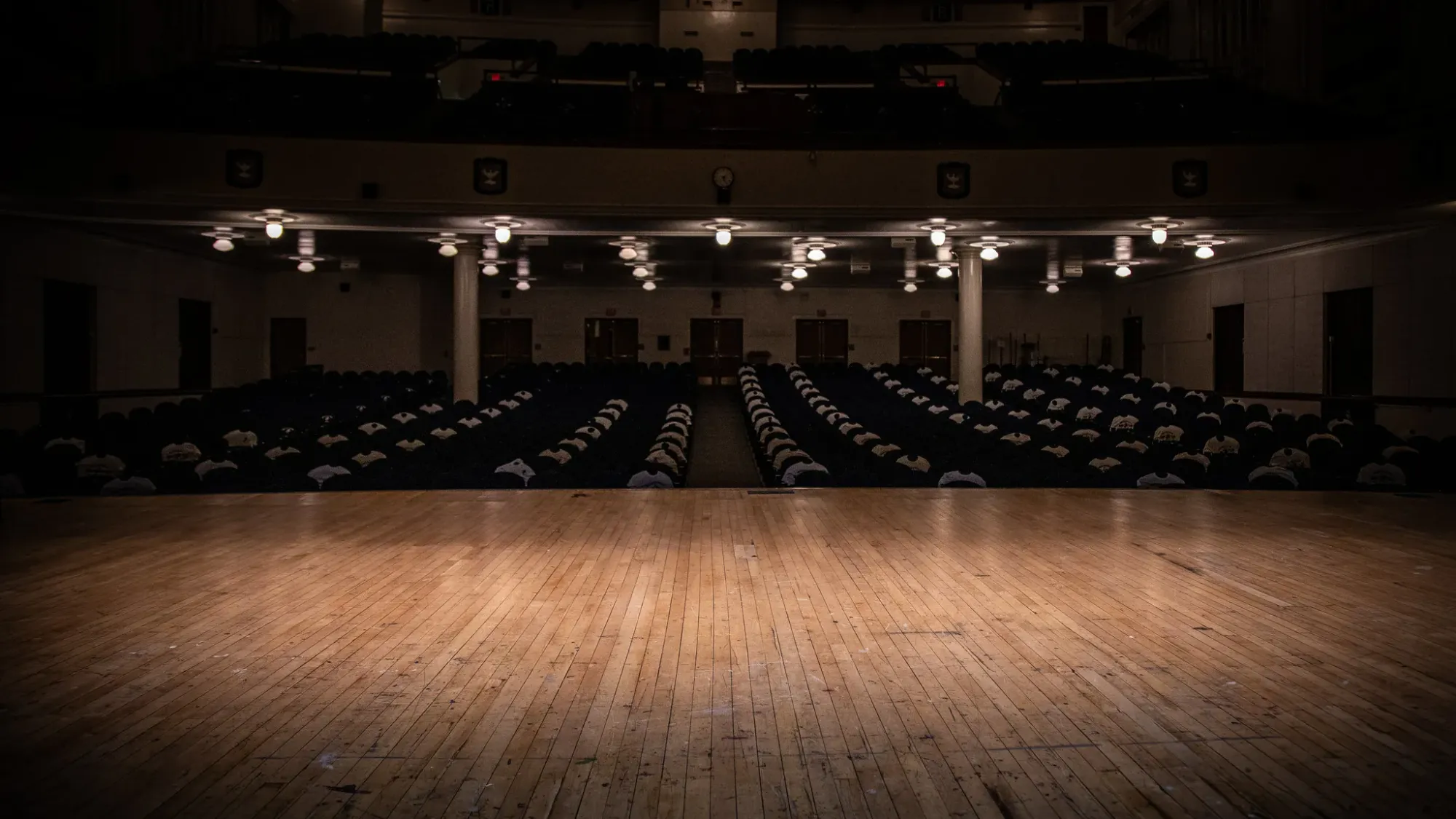
Do you have any sense of the new management's vision for the business?
Procaccini: This is conjecture on my part: I would say the opening of the New York branch certainly makes me think that they want to have multiple hubs. Pre-pandemic, we were really expanding globally with our work. We would do a lot of different workshops around the country, sometimes even around the world. And obviously the pandemic hit and that all went to zero. But as it starts to come back, my guess is their eyes are on that idea of having these different hubs, expanding the business in that way.
And they're a private equity firm, so without hearing from them directly, I can only imagine the goal of private equity firms is often to buy something and then sell it for a higher price.
It was interesting to see both Second City and UCB open and reopen branches in New York after a long period where it seemed like a lesson that could have been learned was that the existing growth model for improv and sketch businesses maybe isn't good, and that it leads to the problems that happened in 2020. But I guess they're right back to it.
Procaccini: In The Second City's case, they have tried to open spots in New York—
Martin: Numerous times.
Procaccini: That's right. I know iO closed in LA and opened back up in Chicago again, but I don't know if they're trying to reopen in LA. But same point. I think you're right. It's the idea of, are we examining the inner workings of the model?
Second City was the first big theater to pay performers, it's the biggest and one of the most storied comedy institutions in the industry. Is there anything the broader community can do to support you in this effort? Is there anything that you want them to take away from this?
Martin: We very intentionally named ourselves the Association of International Comedy Educators because we don't want to be isolated. We hope that others will join us. I think the community encountered their own issues within other theaters, and I think they have been largely supportive of us. But just again, this idea that we should be grateful, and we are, but we should also be allowed to make a living wage. You see with SAG-AFTRA, “Oh, it's these rich actors who just want more.” No, 90% of it is not that. And so I think taking ownership of what we do—obviously it's something that does sell, so why shouldn't we be able to be part of those profits?
Is there anything else we haven’t touched on?
Procaccini: I think we are all desperately hopeful that we are coming towards the end. And as we do that, we really want to make sure that Second City takes seriously the work we put into the proposals that we've made to them. We certainly haven't made those lightly, nor are they, in our opinion, egregious. So we would love for them to take that seriously.
It feels as though when it's convenient from a media or a public-facing image standpoint, Second City touts how it has the best teachers in the world, it's the premier theater in comedy or in improv. And if that's the case, great: let's treat the people doing the work with that same degree of reverence and respect.
Martin: I would just add to your previous question, Second City is a leader in this industry, and what an amazing opportunity to show and to practice what they preach, to demonstrate that they do value their workers, and that when we go to a business and tell them how to run their business and value their employees, we can look inward and say: "Yes, we genuinely do this." I hope Second City will take that opportunity. They've certainly, under different leadership, pledged to do so. So I hope that they will continue to be a leader in this industry and continue to practice what they preach.
Procaccini: I like to say, “It would be different if we were selling pencils.” Part of what we're selling is the philosophy. Either it works, and we should be abiding by it ourselves, or it doesn't, and we should be reframing our programming to follow the model that we're using internally.
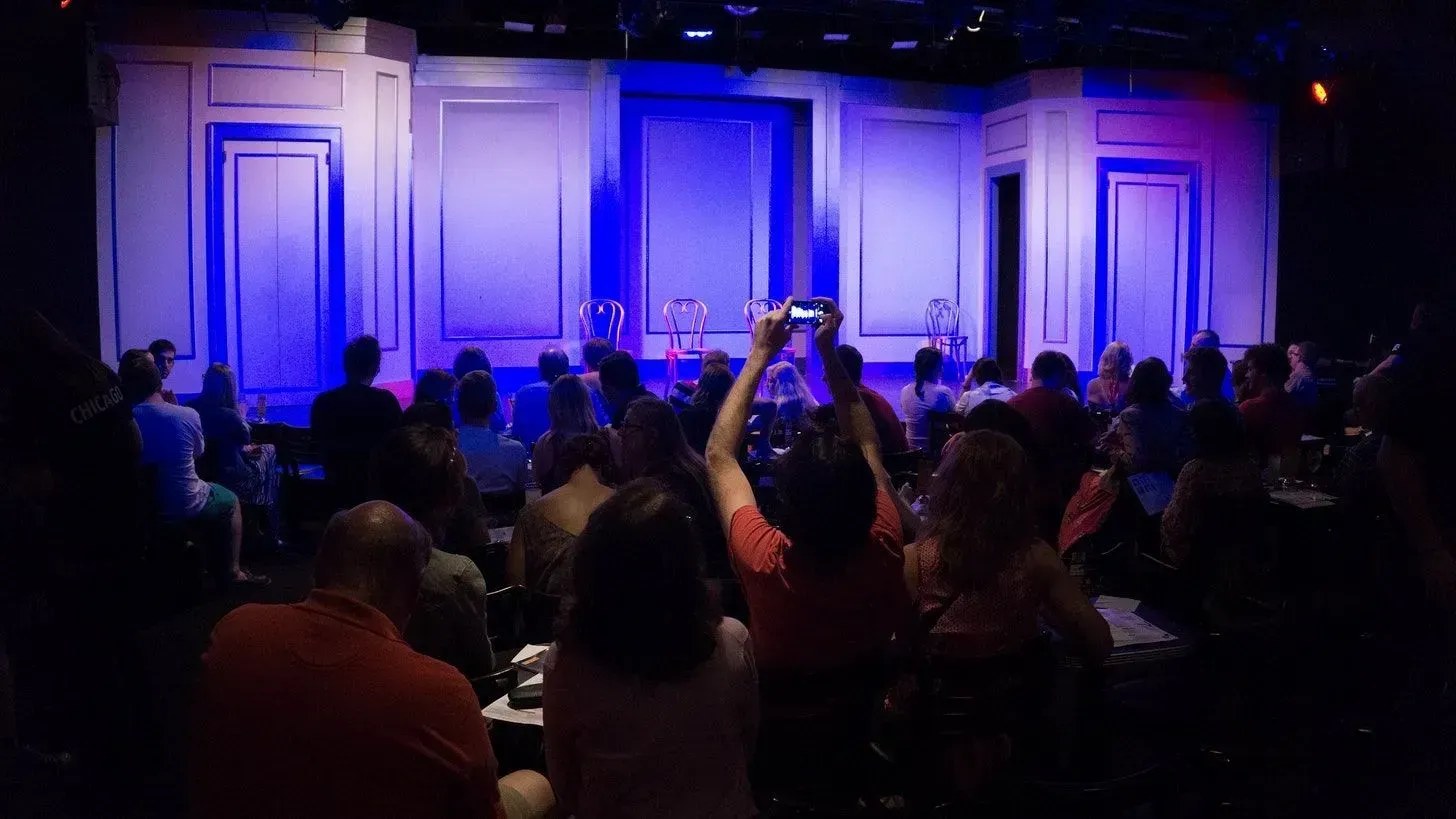
Writing this newsletter, I talk to a lot of people about how their work in their comedy communities shapes their political consciousness, especially over the last few years of the pandemic and the protests and mass layoffs of 2020. So I’m just curious if you want to talk on a personal level about how working in comedy—or even just on this union—has affected the way you see yourselves as political actors.
Martin: The very thing that we do on our stages is satirize this kind of stuff, right? The last show, there was something about how athletes get paid more than teachers do—not necessarily comedy teachers, but teachers in general. We've always pushed the status quo. Our holiday parties used to be the night staff and servers doing a parody, and they created change through that: they would do things like, "Hey, how about healthcare?" And our previous owner—there were some issues there, but he would take that seriously.
So we use comedy to reflect our world and to push back. To some it may seem like we're just telling jokes and doing goofy make-'em-ups, but this is how you enact actual political change. And so again, not to devalue what we bring to the world, even though it may seem frivolous to others, we think it's deeply important.
Procaccini: One of the things that is so important about what we do, and really what we've built the institution on over the last six-plus decades, is this idea of speaking truth to power. And how that's very scary to do and even scarier when the stakes are very high. One of the ways that you do that is you lower the stakes through comedy, to be able to still say the things that need to be said to evoke change.
To echo and fortify Bina's point, it’s for this very reason that the comedy element is so important. We work to keep things relatively hopeful, relatively light, while also making sure not to avoid saying things that need to be said. I think that's the power of what we teach, and it's also, I hope, the way that we've been approaching this process. We've been very collaborative, very open, very willing to have the conversation, and at the same time pretty firm on making sure that we say the things that we need to say and that we push for the things that need to happen.
Martin: Piero and I joke about how "Yes, and" can sometimes be no. "Yes, and" does not mean, "Oh, everything you say is great" Sometimes you need to protect people from themselves, and that is truly what our intention is here. We're making our own demands and requests that may be in opposition to theirs, but we also are very invested in keeping this place open. Sometimes the best way to collaborate is to say, "No, that's not working for us. Here's a better way."

